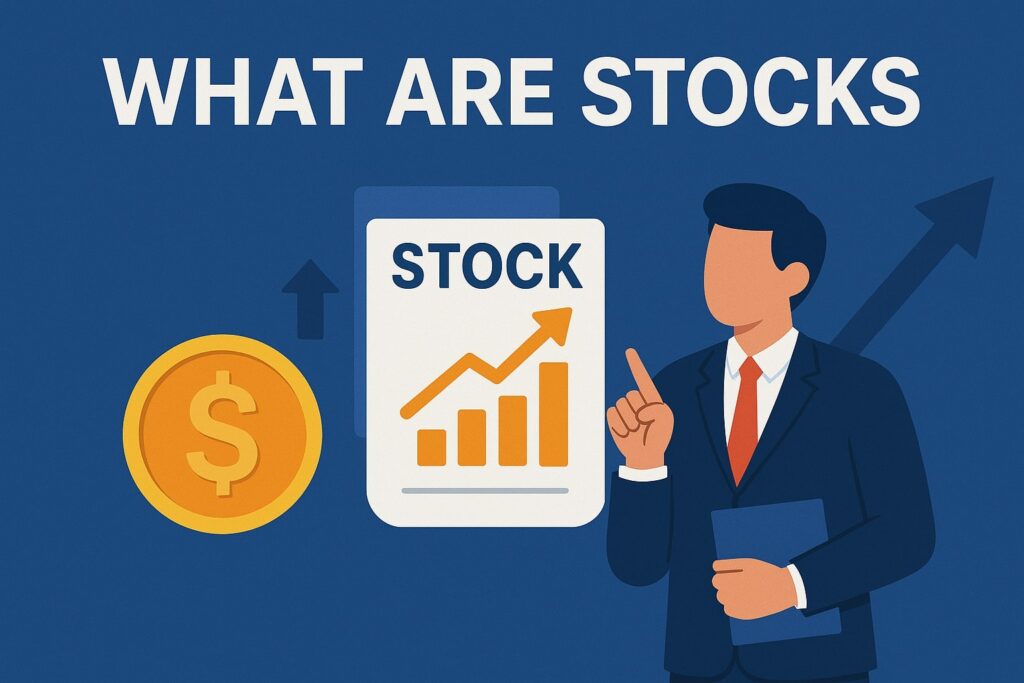Summary:
Choosing between an IPO, mutual funds, and stocks can feel overwhelming for Indian investors. Each has its strengths: IPOs bring high-risk, high-reward opportunities, stocks offer direct ownership and growth potential, and mutual funds provide managed, balanced returns. This blog compares them in detail so you can decide where to put your money.
Introduction
Investing is no longer limited to just buying gold or parking money in fixed deposits. Indian investors are more active in exploring financial markets, with three popular options leading the way – Initial Public Offerings (IPOs), mutual funds, and direct stock investments.
But here’s the big question for many aspiring investors: IPO vs mutual funds vs stocks – which is really the best investment?
The answer isn’t one-size-fits-all. It depends heavily on your financial goals, personal risk tolerance, and how much time you’re willing to dedicate to tracking the ever-evolving markets. Let’s explore these investment avenues in detail to help you make an informed decision.
What is an IPO?

An Initial Public Offering (IPO) occurs when a private company decides to sell its shares to the public for the very first time. This transition allows the company to raise capital for expansion, debt reduction, or other corporate objectives. Investors apply for these shares during a specific subscription window, and if allotted, the shares are credited to their demat accounts before the official listing day on the stock exchange.
Why investors love IPOs in India:
- Chance for listing gains: Many investors participate hoping to sell their shares on the listing day for a quick profit if the stock opens above its issue price.
- Early access to promising companies: IPOs offer an opportunity to invest in potentially high-growth companies at an early stage of their public journey.
- Increasing retail participation: With improved digital platforms and easier access, more retail investors are keen on IPO opportunities.
However, it’s crucial to remember that IPOs can be unpredictable. While some deliver massive gains, others can disappoint, trading below their issue price on listing day.
What are Stocks?

Stocks represent direct ownership in already-listed companies. Unlike IPOs, where you apply for shares of a new public company, you can buy or sell stocks of existing companies anytime during market hours on exchanges like the NSE or BSE. Each stock you own represents a portion of ownership in the company.
Why investors choose stocks:
- Full control over buying and selling: You decide which company to invest in, when to buy, and when to sell, allowing for greater autonomy over your portfolio.
- Ability to focus on specific industries or companies: Investors can tailor their portfolios to specific sectors they believe in, such as technology, pharmaceuticals, or banking.
- Opportunity for long-term wealth creation: Through capital appreciation (the increase in stock price) and dividends (a share of company profits), stocks are powerful tools for long-term wealth building.
The flip side: Picking the wrong stock can lead to heavy losses. Successful stock investing demands thorough research, patience, and unwavering discipline. Tools like IPOCornerr can assist you in making informed decisions by providing relevant financial data.
What are Mutual Funds?

Mutual funds pool money from multiple investors and then invest this collective sum across various assets like equities (stocks), bonds, gold, or a mix of these. These funds are managed by professional fund managers who make investment decisions on behalf of the investors, aiming to generate returns consistent with the fund’s objectives. They’re often considered a relatively safer option, especially for beginners.
Advantages of mutual funds in India:
- Diversification reduces risk: By investing in a basket of securities, mutual funds inherently spread out risk, minimizing the impact of a poor performance by any single asset.
- Managed by expert fund managers: Professionals with deep market knowledge and experience handle the investments, saving you the time and effort of constant market tracking.
- Options for every investor: There are various types of mutual funds to suit different needs – equity funds for growth, debt funds for stability, ELSS (Equity Linked Savings Schemes) for tax savings, and hybrid funds that balance both.
While they may not offer the quick thrill of IPOs or the direct control of stocks, mutual funds are designed to bring steady, predictable growth over the long term.
IPO vs Stocks vs Mutual Funds: Side-by-Side Comparison
To help you visualize the differences, here’s a quick comparison:
| Factor | IPO | Stocks | Mutual Funds |
| Risk Level | High – unpredictable listing gains | Medium to High – depends on stock | Low to Medium – diversified |
| Return Potential | Very high short-term (if successful) | High long-term (if right stocks) | Steady, moderate |
| Liquidity | Tradable after listing | Highly liquid | Moderate (varies by fund type) |
| Knowledge Needed | Moderate – prospectus & GMP check | High – research & monitoring | Low – handled by fund manager |
| Best Suited For | Aggressive, short-term players | Experienced investors, long-term builders | Beginners, busy professionals, steady growth |
| Investment Goal | Quick gains, early entry | Capital appreciation, dividends, control | Diversified growth, professional management |
Which is the Best Investment for You?
The “best” investment is subjective and aligns with your personal investment philosophy.
- IPOs are attractive for those who seek fast results and don’t mind the inherent volatility. With many new-age companies expected to go public in India, the excitement around IPOs remains high.
- Stocks remain a robust wealth-building tool. Investors who conduct thorough research and focus on promising sectors like technology, banking, renewable energy, and electric vehicles could see solid long-term growth and generate substantial returns.
- Mutual Funds continue to be the most balanced and accessible option for many. Regulators keep them in check, they offer instant diversification, and they suit investors who prefer a hands-off approach and don’t want to track markets daily.
👉 The smartest approach for most investors? Diversify! Keep a portion of your portfolio in mutual funds for stability and professional management, allocate some to individual stocks for growth and direct exposure, and use IPOs for opportunistic, potentially high-gain ventures. This balanced strategy mitigates risk while maximizing potential returns.
Final Thoughts
The debate of IPO vs mutual fund vs stocks in India doesn’t have a single winner. Each investment vehicle has its unique role and benefits within a well-structured portfolio. If you’re an aggressive investor with a high-risk appetite, IPOs might suit you. If you’re patient, analytical, and enjoy in-depth research, direct stock investing may be a better fit. If you prefer hands-off investing with diversification and expert management, mutual funds are your friend.
Ultimately, the best investment strategy is a thoughtful mix – balancing risk with reward to achieve your long-term financial objectives.
For all your IPO-related needs, including detailed information and application processes, check out IPOCornerr:
- Website: https://ipocornerr.com/
- Apple App Store: https://apps.apple.com/in/app/ipocornerr/id6747035013
- Android Google Play: https://play.google.com/store/apps/details?id=com.ipocornerr
FAQs
Q1: What makes IPOs attractive to Indian investors in 2025?
A: IPOs create excitement because they give early access to new companies entering the market. Investors often look for quick listing gains, but the catch is that IPOs also carry high risk since the company is new to trading.
Q2: Are mutual funds safer than IPOs and stocks?
A: Yes, mutual funds spread your money across many assets, which lowers risk. They’re also managed by professionals, making them a good choice if you don’t want to study companies or track prices daily.
Q3: How do stocks compare with IPOs?
A: Stocks give you flexibility to buy and sell anytime, while IPOs only let you invest during a fixed window before listing. IPOs can give quick rewards, but stocks offer better long-term wealth creation if you pick strong companies.
Q4: Which is the best investment in India?
A: There’s no single winner. IPOs work for aggressive short-term players, stocks suit long-term investors, and mutual funds fit those who want stability. The best strategy is to mix all three.